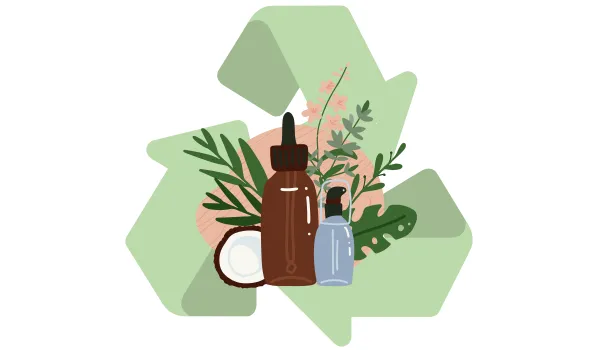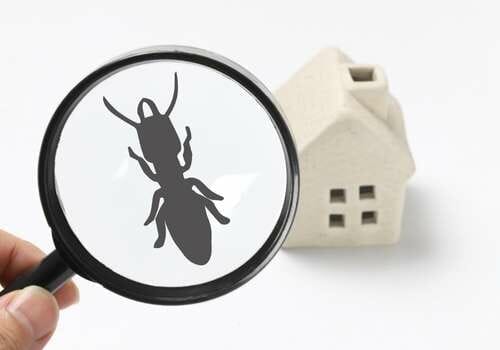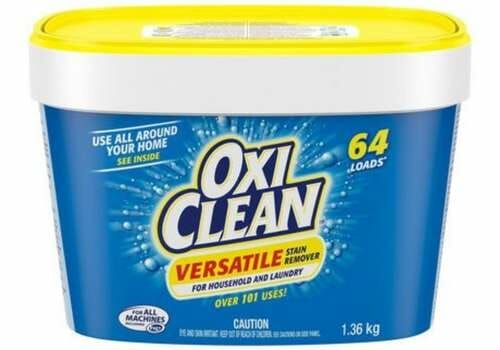How To Dispose Of Essential Oils
Learn how to properly dispose of essential oils with our step-by-step guide, from the diffuser to the trash, no more dumped-down-the-drain mishaps!
Essential oils are a popular and natural way to enhance health, mood, and overall well-being. They have been used for thousands of years and continue to be a staple in modern-day aromatherapy practices. However, with great benefits come great responsibilities – one of which is the proper disposal of essential oils.
Many people are unaware of the potential harm that improperly disposing of essential oils can cause to the environment and even themselves. Essential oils are highly concentrated plant extracts that contain potent chemical compounds. As such, they need to be disposed of carefully and responsibly to avoid any adverse effects on the environment or human health.
In this article, we’ll explore some safe and effective ways to dispose of essential oils so that you can enjoy all their benefits while also being mindful of their impact on our planet.
Understanding The Risks Of Improper Disposal

There are many potential health risks associated with improper disposal of essential oils, such as skin irritation and even respiratory issues.
Get Your Hand on Your Eco-Friendly Living Starter Guide!
The environmental impact of improper disposal of essential oils can be significant as well, including potential water and soil contamination.
When it comes to legal implications, it is important to be aware of any local regulations or laws in your area that govern the disposal of essential oils.
Improper disposal of essential oils can result in costly fines or even jail time.
So it’s important to take the time to research and understand the risks that come with improper disposal of essential oils.
Taking the time to properly dispose of essential oils can save you a lot of trouble in the long run.
Health Risks
Are you someone who uses essential oils for their therapeutic benefits? If so, it’s important to understand the potential health risks associated with improper disposal of these oils.
Improper disposal of essential oils can be hazardous and pose a threat to the environment if not handled properly. Essential oils are considered hazardous waste and should not be disposed of in regular trash or down the drain. Flammable and toxic, these substances require special care when it comes to waste management.
It is recommended to check with your local hazardous waste facility for safe disposal options. Do your part in protecting yourself and the environment by taking proper precautions when disposing of essential oils. Remember, safety first!
Environmental Impacts
Now that we’ve talked about the potential health risks of improper disposal when it comes to essential oils, let’s shift our focus to the environmental impacts.
When essential oils are not disposed of properly, they can have serious consequences on our planet.
These oils are hazardous waste and can cause harm to our soil, waterways, and air quality if they are not handled with care.
Improper disposal of essential oils can also lead to contamination of natural resources which can be harmful to both humans and wildlife.
When essential oils evaporate into the air, they can contribute to poor air quality which can lead to respiratory problems.
Flammable in nature, these oils can also pose a fire hazard if not disposed of properly.
It is crucial that we take proper waste management precautions when it comes to disposing of essential oils in order to protect both ourselves and our environment.
Legal Implications
Now that we’ve discussed the potential health and environmental risks of improper disposal of essential oils, it’s important to also understand the legal implications.
Improper disposal of hazardous waste, including essential oils, is not only harmful to ourselves and the environment but can also result in legal consequences.
In many areas, local hazardous waste regulations require proper disposal methods for therapeutic and old essential oils. Failure to comply with these regulations can lead to fines or even legal action.
Additionally, if someone is harmed due to improper disposal of essential oils, there may be legal liability involved. Therefore, it’s essential to educate ourselves on proper waste management methods for essential oils and ensure their safe disposal to avoid any potential legal implications.
Recycle Or Reuse: Options For Empty Bottles

What do you do with empty essential oil bottles? Don’t just dispose of them! There are options for recycling and reusing these bottles that can benefit not only the environment but also your wallet.
One option is to recycle the empty bottles. Check with your local waste management department to see if they accept glass containers, and if they do, rinse out the bottles before placing them in the recycling bin.
Another option is to reuse the empty bottles. Clean them out thoroughly, then fill them with carrier oils or create your own essential oil blends. Alternatively, some retailers or suppliers will take back empty essential oil bottles for reuse or recycling.
Avoid throwing away used oils at a hazardous waste facility as this may contaminate water sources and harm wildlife.
In conclusion, there are many options for disposing of essential oils that don’t involve simply throwing them away. Recycling and reusing empty bottles can help reduce waste while also saving you money in the long run. Consider these options next time you find yourself with an empty bottle of essential oil!
Diluting And Disposing Of Unused Oils
When it comes to essential oils, proper disposal is crucial. These oils are not only therapeutic but can also be hazardous if not disposed of properly. In fact, many essential oils are considered as hazardous waste and require special waste management practices.
One way of disposing of old essential oils is by diluting them with carrier oils. This method not only makes the oil less potent but also safer for disposal. Once diluted, the oil can be poured into a container with a lid and labeled as ‘hazardous waste’. However, it’s important to note that some carrier oils may also be flammable, so make sure to choose a carrier oil that is safe for disposal.
Another way of disposing of unused essential oils is by contacting your local hazardous waste facility or government agency for guidance. They may have specific guidelines on how to dispose of essential oils in your area.
Whatever method you choose, be sure to follow all safety protocols and dispose of the oil responsibly. Remember, proper disposal helps protect our environment and keeps us all safe.
Safe Disposal Of Spilled Or Contaminated Oils

You may be wondering what to do if you spill or contaminate your essential oils. It’s important to remember that these oils are potent and can pose a hazard if not disposed of properly.
One common method people might consider is pouring the oil down the drain, but this is not a safe way to dispose of them. Not only can it damage your plumbing, but it can also harm the environment.
So what is the proper way to dispose of essential oils? If you have contaminated any surfaces, clean them up with a cloth or paper towel and discard in the trash. If you have spilled oil on clothing or other absorbent materials, let it evaporate before washing them.
When disposing of any leftover oils, check the material safety data sheet (MSDS) for specific instructions on disposal as some oils are considered hazardous waste. In general, it is best to contact your local waste management facility for guidance on how to safely dispose of any leftover oils with therapeutic properties.
Remember that essential oils are flammable and should never be disposed of near an open flame or heat source.
Conclusion on Disposal of Essential Oils
In conclusion, proper disposal of essential oils is crucial in protecting the environment and our health. Understanding the risks of improper disposal such as contamination and pollution is the first step towards responsible waste management.
Recycling or reusing empty bottles, diluting and disposing of unused oils, and safe disposal of spilled or contaminated oils are all viable options for getting rid of essential oils.
So, don’t let your old oils become a ticking time bomb – take action today and dispose of them properly.
Remember, every little effort counts towards saving our planet from an impending environmental catastrophe. Let’s do our part in preserving the Earth for future generations.






